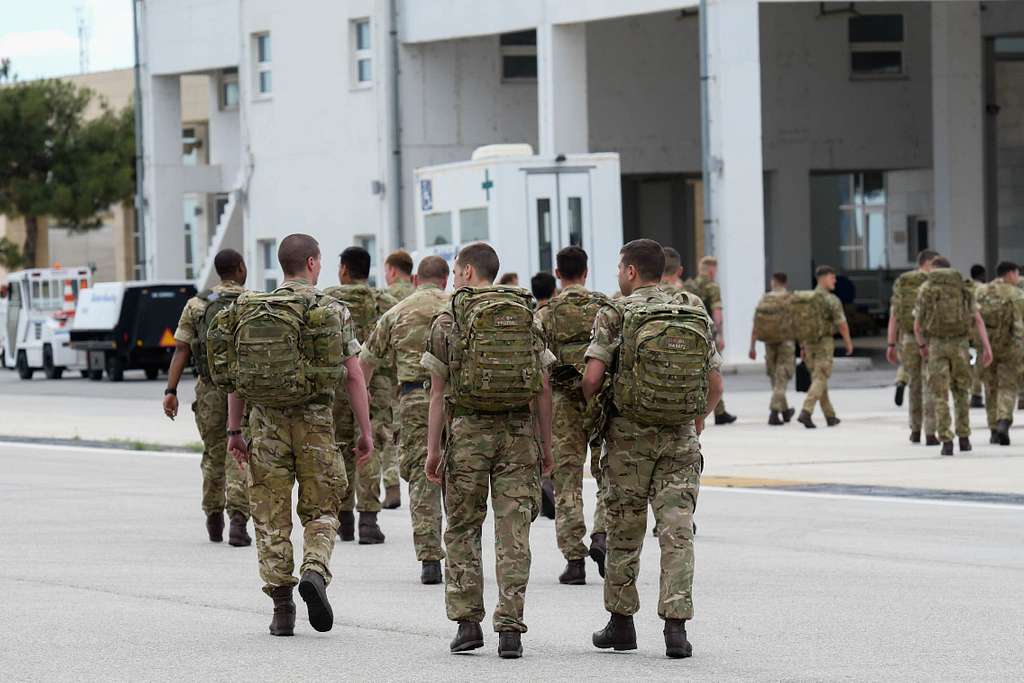
Sports Psychology
The intersection of psychology and athletic performance presents a fascinating area of study and practice. Through years of engagement with premier league football teams, I've observed how mental skills development can transform athletic performance across all levels of competition.
Key Insights:
- Mental Skills Development: How focusing techniques and competitive mindset training elevate performance outcomes.
- Competition Preparation: The critical role of pre-competition routines in managing performance anxiety.
- Injury Psychology: Psychological factors that influence recovery trajectories after sports injuries.
- Team Dynamics: How psychological principles strengthen team cohesion and communication.
- Performance Mindsets: Research into optimal performance states and how they manifest in competitive contexts.

Military Psychology
Military environments present unique psychological challenges that offer profound insights into human resilience and performance under pressure. My work at the Royal Military Academy Sandhurst has illuminated how psychological principles can support operational effectiveness and personnel wellbeing.
Research Areas:
- Resilience Mechanisms: Understanding how individuals adapt and maintain function in high-stress environments.
- Leadership Psychology: Examining the psychological dimensions of effective leadership in high-stakes contexts.
- Unit Psychology: Factors that contribute to cohesion and effectiveness within military units.
- Decision Science: How cognitive processes operate under pressure and in uncertain conditions.
- Transition Psychology: Understanding the psychological aspects of role transitions and career changes.

SLT Performance Optimisation
The corporate environment offers a compelling laboratory for understanding how psychological factors influence leadership effectiveness and decision-making quality. My research with C-suite executives has revealed important patterns in how psychological capabilities translate to organisational outcomes.
Areas of Investigation:
- Leadership Psychology: The cognitive and emotional foundations of authentic leadership styles.
- Stress Resilience: Psychological mechanisms that support performance maintenance under pressure.
- Decision Psychology: How cognitive biases and heuristics influence strategic decision processes.
- Sustainable Performance: The psychological equilibrium needed for long-term leadership effectiveness.
- Team Psychology: How executives can create psychologically optimal team environments.

Mental Resilience
Psychological resilience represents perhaps the most foundational capability for high performance in challenging environments. My research across multiple contexts has identified core components that contribute to resilient functioning and adaptive responses to adversity.
Research Directions:
- Stress Response Patterns: How different cognitive strategies influence physiological and psychological stress reactions.
- Cognitive Flexibility: The role of flexible thinking in adapting to changing circumstances.
- Emotional Regulation: Mechanisms that support emotional balance during high-pressure situations.
- Recovery Science: Evidence-based approaches to psychological and physical restoration.
- Growth Orientation: How mindset influences learning trajectories after setbacks and challenges.
Research Approaches
My examination of psychological dimensions across these domains employs multiple methodological approaches to generate comprehensive insights. Each approach contributes unique perspectives on how psychology influences optimisation and wellbeing.
Group Dynamics
Analysing how team-level psychological factors emerge from individual attributes and influence collective outcomes.
Cognitive Assessment
Assessments using EEG technology, cognitive processing speeds, learning, and cognitive performance tools & techniques
Wellbeing Integration
Investigating how psychological wellbeing intersects with performance outcomes in demanding environments.
Research Process
My approach to psychological research follows a structured methodology that ensures rigorous and applicable insights. This process allows for both scientific validity and practical relevance.
Problem Identification
Defining clear research questions that address meaningful gaps in understanding psychological aspects of performance.
Assessment Design
Developing robust methodologies to examine psychological factors in ecologically valid contexts.
Data Collection
Gathering information through multiple channels including observation, validated instruments, and qualitative methods.
Analysis & Interpretation
Applying rigorous analytical approaches to uncover meaningful patterns and relationships in psychological data.
Insight Synthesis
Integrating findings into coherent models that inform practical applications and future research directions.
Interested in Research Collaboration?
I welcome discussions about research partnerships and knowledge exchange in these areas of focus.
Get in Touch